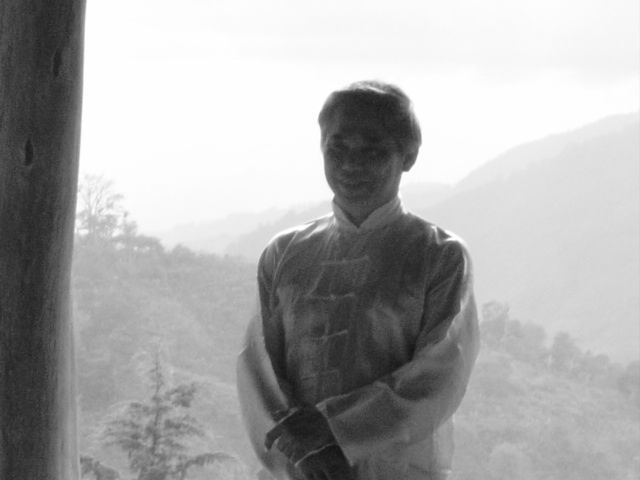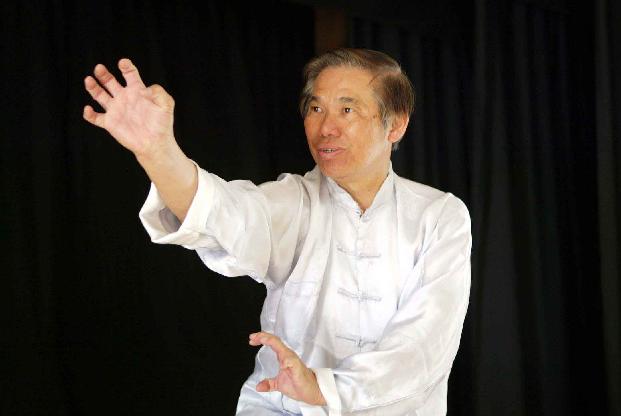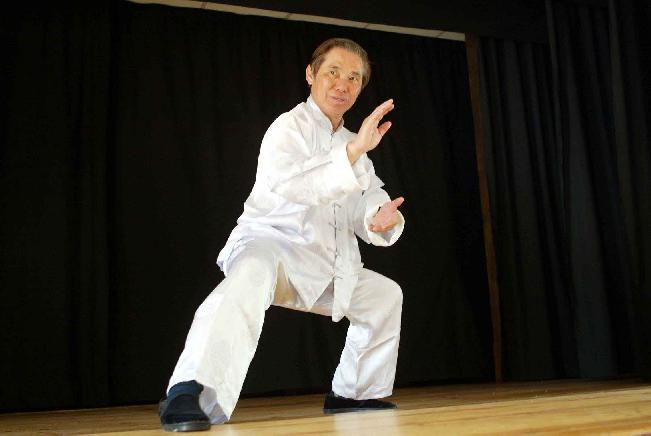ZEN AND TAO

Grandmaster Wong, a product of Zen and Tao
The Five Arts of Taoism
Since no one has offered any concrete evidence to substantiate the claim that Zen is an offshoot of Taoism, I propose to do the next best thing. Having consulted with my Sifu on some of the finer points, I'll briefly discuss the main teachings of Taoism. Then I'll examine if these teachings have significantly changed Zen Buddhism as it was originally taught by Bodhidharma.
Taoist cultivation is traditionally classified into five broad categories known as “wushu” (or “five arts”). The classification is for convenience. Different Taoist schools or authorities may have slightly different versions of the “five arts”. (Please note that “wushu” written in different characters and pronounced in different tones means “martial art”.)
- Medicine
- Martial Arts
- Qigong
- Divination
- Spirituality
The category Medicine includes taking appropriate food in the appropriate seasons. It also includes preparation of the Golden Elixir to be taken orally in order to attain immortality.
Taoist Martial Arts emphasize internal training. The main styles are Taijiquan, Baguazhang and Xingyiquan.
Qigong is practiced for health, longevity, sexual prowess, martial arts, as well as attaining immortality. This category includes meditation.
Divination is a broad category and includes arts like astronomy, geomancy (feng shui), fortune telling, military strategies, exorcism, and divination (using the Yi Jing).
The category of Spirituality includes various means of spiritual cultivation to attain immortality or to return to the Tao. The main approach is “jing zuo” or sitting meditation.
It can be seen, therefore, that Taoist cultivation is extremely extensive, rich, and advanced.
Has Taoism influenced Zen?

Grandmaster Wong demonstrating a Shaolin pattern known as “Fierce Tiger Descends Mountain”
The knowledge in Zen is also extensive, but of a different nature than the knowledge found in Taoism. Zen has different goals. A simple comparison of the two traditions is as follows:
Taoist medicine is based on Yin-Yang and the Five Elemental Processes (Wu Xing). Zen medicine (which is insignificant compared to Taoist medicine) is based on the “Four Greats” of Metal, Water, Air, and Fire. These two medical systems are characteristically different.
The signature Taoist martial art is Taijiquan. The signature Zen martial art is Shaolinquan. While there are many similarities between them, Taijiquan is Taijiquan and Shaolinquan is Shaolinquan. If they were the same, Sifu Wong would not teach them as separate arts.
Taoist qigong and Zen qigong are also characteristically different, though they have had many mutual influences. In my opinion, Taoist qigong is richer than Zen qigong. An example of Taoist qigong in our school is Dantian Breathing. An example of Zen qigong is Sinew Metamorphosis.

Grandmaster Wong demonstrating a Taijiquan pattern known as “Green Dragon Plays with Pearl”
The category of Divination, which is very important in Taoism, is completely absent in Zen. This is mainly because the Buddha advised Buddhist monks not to use their psychic powers for divination.
In both Taoism and Zen, meditation is the main method towards the highest spiritual attainment. But the approaches, as I have explained in an earlier post, are characteristically different. Taoist meditation is rich in visualization, whereas visualization is discouraged in Zen meditation.
I'm quite satisfied with what I've learned in this long thread. The lack of evidence to substantiate the claim that Zen is an offshoot of Taoism — not only in this thread but in my own research — is surprising. When I compare this lack of evidence with the mountain of evidence offered against the claim, then it is even clearer to me now than when we started this discussion that Zen is Zen, and Tao is Tao.
LINKS
Topics on Zen and Tao
- Zen is Zen, Tao is Tao
- Mistaking the word “Tao” for Taoism
- Zen Writings and Taoist Writings are Characteristically Different
- Simple in Language, Profound in Meaning
- Flowery Language in Buddhist Writings
- Symbolism in Zen Writings?
- A Parable — An Expedient Means for Spiritual Cultivation
- Yin-Yang and Non-Duality
- Wu Wei and the Void
- Zen and Tao
